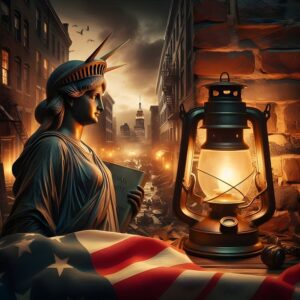In Walt Whitman’s poetry, the American people are portrayed as diverse, resilient, and central to his vision of democracy. He celebrates the common worker, from farmers to laborers, as integral to the fabric of the nation. He sings of the Blacksmith, the Negro, the Butcher, the farmer returning from the fields, the mother sewing, the soldier keeping watch. We hear hummimg and clatter coming out of the houses, stone cutting, cotton loading and various voices in his poetry.
Whitman’s Concept of Freedom:
Whitman’s concept of freedom is all-encompassing, emphasizing individual liberty and the right to self-expression. His poetry reflects a deep admiration for the American spirit of independence, equality, and opportunity. The concept of freedom and American democracy is recurrent and one of the major themes of Whitman’s poetry. He embraced it in all his manifestations – fields, trees, birds, animals, farms, light, air, sea, man, woman and their politics and social transactions, factories, workshops, offices, stores, streams, cities, plains and countryside. Whitman accepted all of these and many more items as the integral part of American democracy.
Whitman’s Praise of his Countrymen:
Whitman praises his countrymen not just for their contributions to building the nation, but for their inherent dignity, regardless of class, race, or occupation. He believed every person had a unique value, and his poetry often emphasizes the interconnectedness of all people. To him the whole universe was beautiful and made of the stuff of poetry.
Whitman’s Love of Comrades:
His “love of comrades” expresses his ideal of brotherhood and solidarity, where people come together in mutual respect and understanding, transcending divisions of social status. Whitman was the advocate of brotherly love and complete equality.
Conclusion:
In conclusion, Whitman’s poetry is a celebration of America’s democratic ideals. He envisions a future where freedom, equality, and unity prevail, and where every individual plays a vital role in shaping the nation. His work remains a powerful testament to the ideals of inclusion and the boundless potential of the human spirit. We can say that Whitman was much of a prophet of democracy sent to earth with grass as a symbol.

